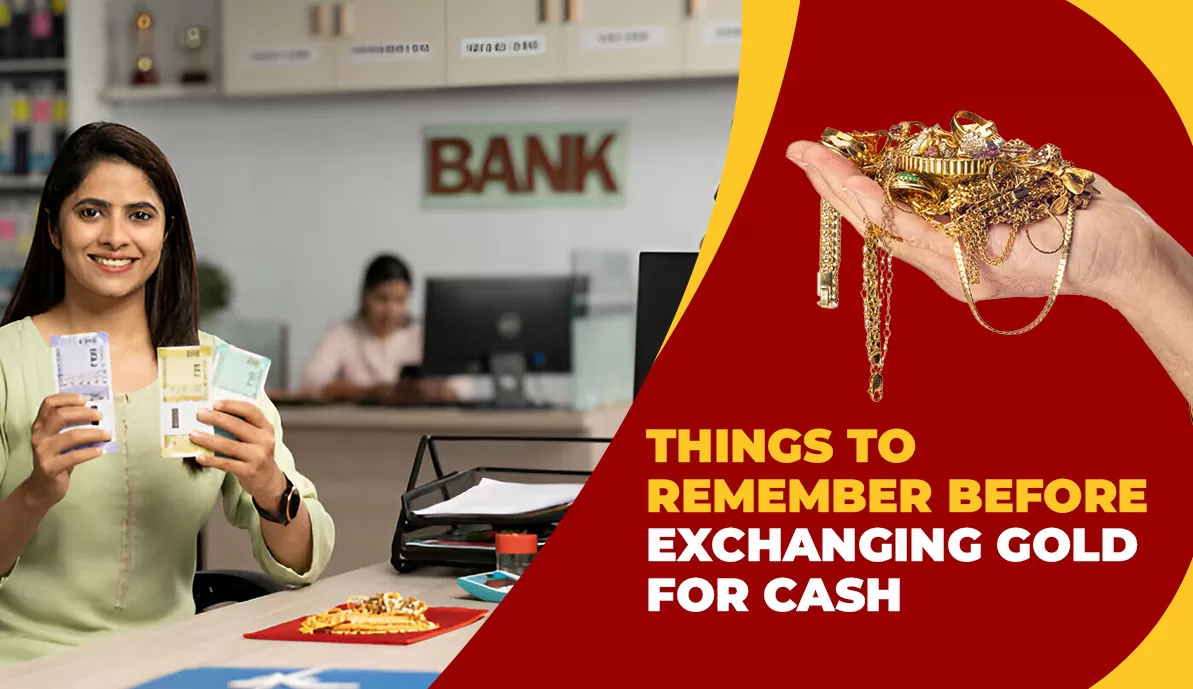Gold has always been more than a shiny metal. It’s a symbol of wealth, security, and timeless value. Whether it’s an ornate necklace or a few gold coins, the decision to exchange gold for cash should never be impulsive. After all, your gold is more than just a commodity; it’s an investment that deserves careful consideration. Knowing the nuances of the process ensures you don’t leave money on the table. In this blog, you will uncover the secrets to getting the best value from your gold jewellery while avoiding common pitfalls.
Understand the Real Worth of Your Gold
The value of gold is not just about its shiny allure. It’s rooted in its purity, weight, and karat grade. Purity is measured in karats, with 24K being pure gold, while lower karats indicate the presence of other metals like copper or silver.
Weigh your gold using a precise scale before visiting a buyer. This ensures you know what to expect when the buyer measures it. Don’t rely solely on the buyer’s scale, as minor differences can significantly impact your payout. Also, research the current gold market price. Gold rates fluctuate daily, so selling when prices peak can make a notable difference.
Factor in Deductions and Hidden Charges
Most buyers deduct melting, refining, or evaluation charges from the payout. These fees can vary, so it’s crucial to understand the breakdown of deductions before finalising a deal. Some buyers might also offer lower rates for broken or damaged pieces, even though the value should primarily depend on weight and purity. It is essential to always visit stores you can trust when planning to exchange gold for cash, such as Cash For Old Gold. Transparency in pricing is a hallmark of trustworthy buyers. If a buyer hesitates to provide clarity, it’s a sign to proceed cautiously or seek another option.
Timing Matters
Gold prices are as unpredictable as the weather. They can be influenced by global economic trends, demand during festive seasons, and geopolitical events. For instance, gold prices typically rise during times of financial instability when investors seek it as a safe haven.
Selling during these high-demand periods can boost your returns. Stay updated on market trends through reliable sources. Timing your sale strategically ensures you capitalise on favourable conditions.
Documentation and Authentication
The paperwork that comes with your gold, such as receipts, certificates of authenticity, or prior appraisals. These documents can strengthen your position as a seller. These documents validate the gold’s purity and weight, making negotiations smoother.
Even if you’ve lost the original documentation, you can still sell your gold. Many buyers have tools to verify authenticity independently. However, having papers in hand can often lead to better offers.
Beware of Emotional Attachments
Gold is often more than a financial asset. It’s a repository of memories and family legacies. Before selling, you must pause to evaluate whether the monetary gain outweighs the emotional loss. For example, parting with a cherished handloom might provide immediate cash but could lead to regret later. Consider whether it’s worth keeping certain pieces for sentimental reasons while selling others for practical needs.
Know What You’re Selling
Jewellery and coins are not always pure gold. Many items contain alloys added to enhance durability or aesthetics. Buyers will often test the purity using specific methods like acid tests or electronic devices. Understand what portion of your item is pure gold versus added metals. This knowledge helps you set realistic expectations and avoid being blindsided by lower offers due to mixed compositions.
Payment Methods and Immediate Liquidity
Not all buyers offer the same payment methods. While cash is often the most straightforward choice, some may suggest cheques, bank transfers, or even digital payment methods. Confirm the payment timeline before finalising the deal. Immediate payment is critical when you’re exchanging gold for liquidity. Avoid buyers who delay payouts or provide vague timelines. Transparency and promptness are non-negotiable traits in a reliable buyer.
Avoid Common Mistakes
One of the most frequent errors sellers make is attempting to melt their gold at home to save on melting fees. This risky move can lead to weight loss and reduced purity, ultimately lowering your payout. Leave the technical work to professionals equipped with the right tools.
Another mistake is undervaluing damaged or broken jewellery. While imperfections might reduce aesthetic value, they rarely impact the intrinsic value of gold. Ensure you’re aware of this distinction to avoid accepting lowball offers.
The Bottom Line
Turning gold into cash can be a lifesaver, but only if you approach it strategically. From understanding its true worth to timing the sale perfectly, every step plays a crucial role in maximising your returns. Remember, your gold is more than just a financial asset. It’s a reflection of your foresight and smart decision-making. Equip yourself with the right knowledge, ask the right questions, and ensure that every gram of gold you sell translates into its true monetary value.


0 Comments